Plastic Waste recycling – Experience meets quality: EREMA sets standards in PET recycling 13-03-2024
Plastic Waste recycling
Crude Oil Prices Trend
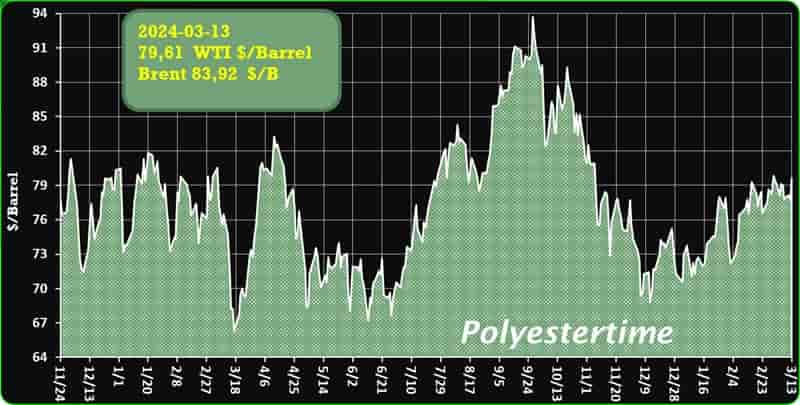
Crude Oil Prices Trend by Polyestertime
Experience meets quality: EREMA sets standards in PET recycling
When it comes to the efficient and safe processing of PET waste, EREMA can draw on valuable experience. The bottle systems made by the Austrian recycling machine manufacturer have 25 years of proven experience on the market. Almost half of the bottle systems shipped in the past three years have been installed in Asia. The production of food contact compliant rPET is becoming increasingly important there – also in the textile industry. EREMA impresses with the highest quality standards and not only easily undercuts the strict limit values of the European and North American authorities for food safety recognised worldwide, but also meets the specifications of global brands. At Chinaplas in Shanghai from 23 to 26 April, 2024, EREMA experts will be on hand to share their expertise with trade fair visitors interested in recycling. Plastic Waste recycling
The ongoing growth of the PET industry, especially in Asia and Africa, is boosting the demand for recycling solutions for PET waste. “We offer the right systems for specific requirements, including for direct food contact,” says James Qiu, General Manager at EREMA Shanghai. The central element is the tried-and-tested VACUREMA® technology, which the international machine manufacturer launched 25 years ago and has been continuously developing ever since. Over 400 PET systems for food grade are in operation worldwide using various technologies such as VACUREMA® Basic, Advanced, Prime, MPR, and VACUNITE®, notching up a total capacity of more than four million tonnes per year. In the last three years alone, EREMA has delivered 100 systems for the bottle market. Almost 60 percent of these are bottle-to-bottle solutions. The rest are divided between bottle-to-sheet, PET strapping and the bottle-to-fibre segment, which is going from strength to strength. Plastic Waste recycling
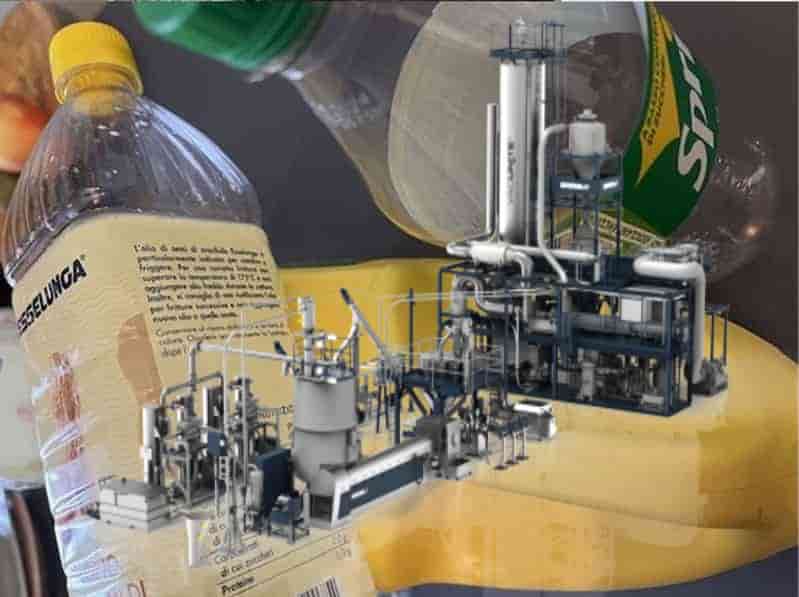
Polykemi’s subsidiary, Rondo Plast, has invested close to €1 million in new plastic recycling equipment, marking a significant expansion in their recycling capabilities
The investment includes the acquisition of a plastic compactor and a cutting machine, boosting the facility’s processing capacity by 4,000 tonnes annually. With this upgrade, Rondo Plast can now efficiently process a broader range of low-density materials in various forms.
The newly acquired machinery is equipped to handle fibers, ropes, non-woven textiles like diapers, as well as dust and shavings composed of PA6, PA66, PBT, PC, and PP, as confirmed by Patrik Lindqvist, strategic purchaser at Rondo Plast. Particularly, the cutting machine enables the processing of longer or entangled pieces, such as polyamide fibers from clothing or carpet manufacturing. Plastic Waste recycling
Lindqvist emphasized the significance of this advancement, highlighting that previously disregarded materials like combustible waste can now be repurposed into high-quality recycled plastic compounds, contributing to sustainable production practices.
Rondo Plast’s Ystad facility now boasts an upgraded recycling capacity ranging between 25,000 and 30,000 tonnes annually, depending on the polymer processed, as detailed by Lindqvist. Plastic Waste recycling
This expansion is particularly notable amid a backdrop of declining production capacities and closures among European plastic recyclers, attributed to reduced demand, soaring energy costs, and challenges in competing with imported feedstock.
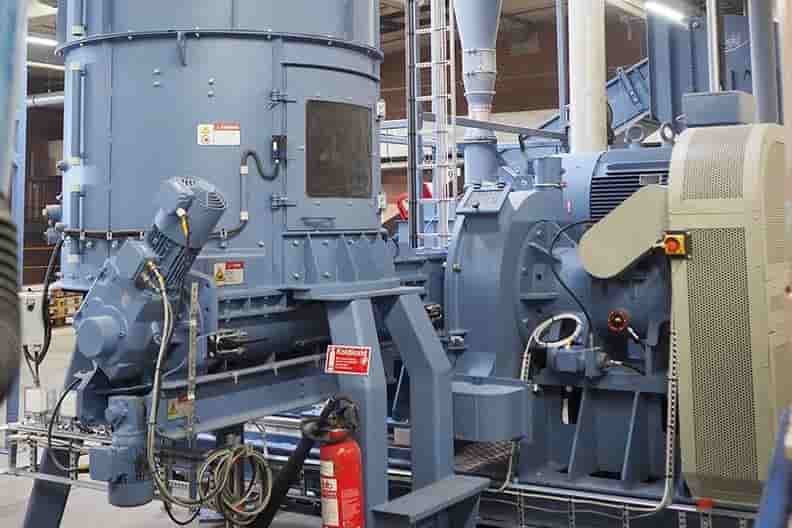
Triple success in Australia’s circular plastic initiatives sees Circular Plastics Australia (PET) partnering with Amut for their recycling endeavors in Albury and Melbourne
Amut’s selection comes as a strategic move by the joint venture between Pact Group, Cleanaway Waste Management, Asahi Beverages, and Coca-Cola Europacific Partners (CCEP).
In Melbourne, Amut also collaborates with the Circular Plastics Australia (PE) joint venture for the “Choir” project, targeting HDPE and PP recycling. These projects implement custom-engineered sorting and washing systems to establish a closed-loop cycle for bottles, promoting reuse and sustainability. Plastic Waste recycling
The Duet recycling line, operational since 2022, surpasses its initial output target, now reaching 4,000 kg/h from the initial 3,400 kg/h. Amut’s Symphony project, celebrated in the presence of notable governmental figures, represents a significant stride in plastic recycling in Victoria. With approval for the Choir project secured, Amut reinforces its commitment to advancing recycling technology.
Symphony’s facility boasts state-of-the-art equipment capable of annually converting billions of PET beverage bottles into high-value food-grade PET pellets. The plant also processes low-viscosity PET tubs and trays, expanding its recycling capabilities.
Amut’s washing lines employ advanced technical solutions to ensure the purity of final PET flakes, reducing operational costs through efficient power, water, and chemical consumption. These advancements signify a positive shift towards sustainable plastic management in Australia. Plastic Waste recycling
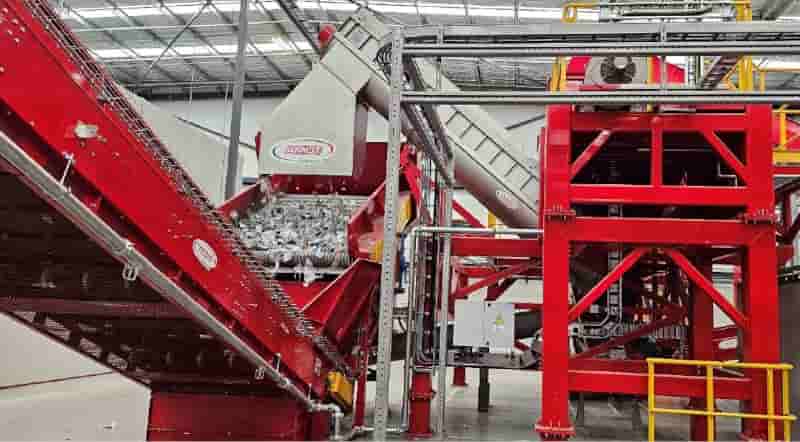
Irish agribusiness group ClonBio to invest $500m in US biorefinery
Announcement just one of a number made during Enterprise Ireland’s programme of events in the US for St Patrick’s Day
Irish agribusiness group ClonBio is to invest $500 million (€457 million) in a US biorefinery in a move expected to support more than 1,000 jobs.
ClonBio earns revenues of about €400 million a year making proteins, animal feed, biofuel, ethanol and alcohol from grain in Europe and the US, and renewable gas at a plant in Co Kildare.
In a statement on Monday, it said it was planning a “dramatic increase” in its investment in a “formerly mothballed biorefinery” it acquired in Jefferson, Wisconsin in mid-2022.
The planned half-billion dollar cumulative investment will support more than 1,000 local jobs and support grain farmer incomes and the state economy “for decades to come”, the group said.
The announcement was just one of a number made during Enterprise Ireland’s programme of business events in the US for St Patrick’s Day.
ClonBio contracted to purchase a mothballed ethanol plant in Wisconsin several months prior to the passage of US president Joe Biden’s Inflation Reduction Act.
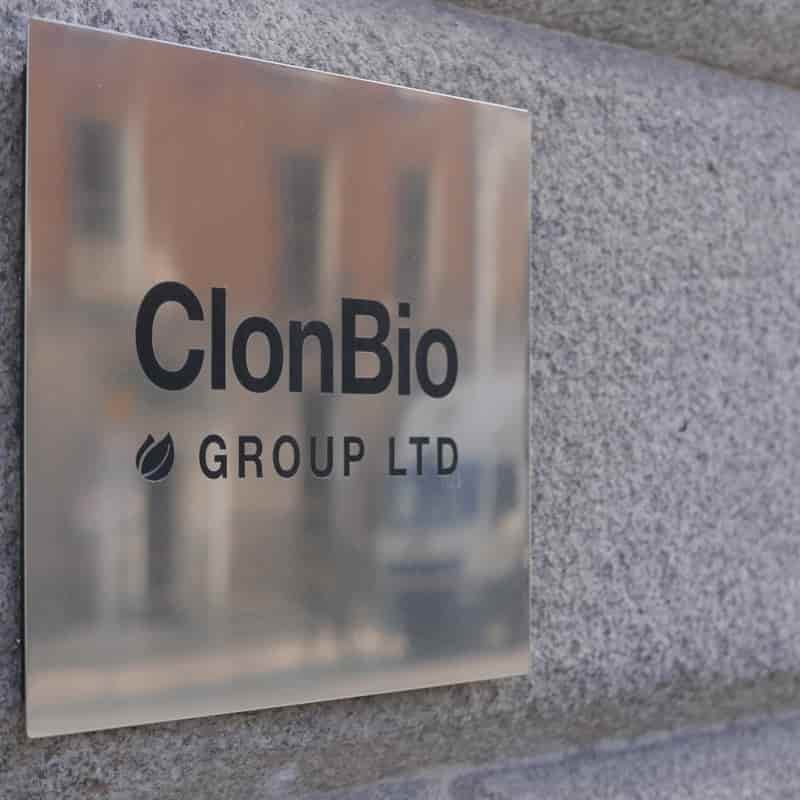
Application of dissolution to recycle ABS plastics in a circular way
Developing technologies for a circular future is at the heart of our sustainability strategy at TNO. It’s the reason we’ve set ourselves a goal to produce half of all plastics circularly by 2030 – and we’re working towards that target in many different ways. To accelerate implementation, we are currently working with ABS producer ELIX Polymers where we are exploring the applicability of the process for recycling ABS polymers (Acrylonitrile, Butadiene, Styrene) derived from end-of-life electronics. Plastic Waste recycling
One area of innovation is plastics recycling technologies. Improving recycling processes is key to addressing the alarming growth of plastic waste. Furthermore it will lower our dependence on oil to produce plastics, and reduce unacceptable levels of CO2 emissions – and we’ve already made exciting developments.
The crux of the dissolution process
With dissolution, a physical recycling technology that utilises solvents to dissolve post-consumer plastics, polymers can be recovered that are of superior quality than the recyclate from mechanical recycling. Plastic Waste recycling
At the same time it has a higher material efficiency and requires less energy than chemical recycling. Put simply, it’s because the polymer remains intact throughout the process, rather than being broken down into monomers at high temperatures.
The topic has long been an area of exploration for TNO Senior Scientist, Mark Roelands. An expert in process integration, separation technologies and solvent-based plastics recycling.

Busch Strengthens Autoclave Solutions Following Acquisition
Busch (UK) Ltd. has integrated the autoclave solutions from Vacuum Furnace Engineering (VFE) into its brand. This broadens Busch’s offerings to encompass all equipment and services required for autoclaves, ovens, and composite manufacturing.
Existing VFE customers will experience no change in personnel, as the Poole Autoclave Solutions Centre remains operational under Busch. Similarly, the Halesowen facility continues to specialize in vacuum furnaces. Plastic Waste recycling
Busch positions itself as a comprehensive solution provider for autoclave needs, supporting all brands. Their offerings include new and upgraded equipment like autoclaves, ovens, cooling systems, and control systems. Notably, their in-house, customizable AMCS (autoclave management and control system) allows remote monitoring and global support. This enhanced portfolio caters to diverse needs in the composite manufacturing industry.
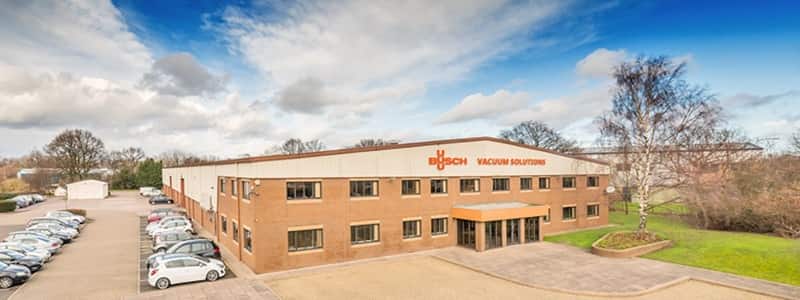
LyondellBasell invests in catalysts in Italy
LyondellBasell is expanding its investment in catalysts at the Ferrara site in Italy, particularly in the production of catalysis systems for polyolefins, in response to escalating market demands. This initiative marks a significant step, occurring 70 years after Giulio Natta’s groundbreaking discovery of polypropylene. The expansion project at one of the plants is slated for completion by the latter half of 2025.
The surge in catalyst demand parallels the global uptick in plastic consumption, particularly in emerging economies, and the increased production of polyolefins through LyondellBasell-licensed technologies worldwide. Plastic Waste recycling
Corrado Rotini, Ferrara Site Manager of Basell Poliolefine Italia, emphasizes that this investment aims to ensure catalyst availability for clients utilizing their licensed technology worldwide, solidifying their position as the leading catalyst supplier for polymer production globally. Additionally, Rotini underscores the strategic significance of the Ferrara site within the group for pioneering innovative technological solutions and next-generation catalysts.
The Ferrara site boasts production facilities and the Giulio Natta Research Center, where polypropylene was first produced, featuring the catalysis system discovered by Nobel laureate Giulio Natta on March 11, 1954. Leveraging Spheripol and Catalloy technologies, the Emilian hub manufactures both catalysts and polymers. Furthermore, it hosts a pilot plant employing MoReTec technology for chemical recycling, enriching its petrochemical complex capabilities. Plastic Waste recycling
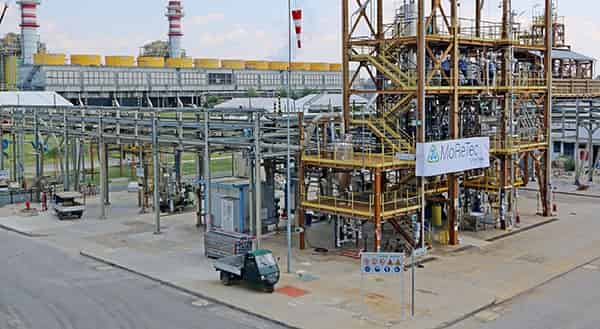
Plastic Waste recycling
